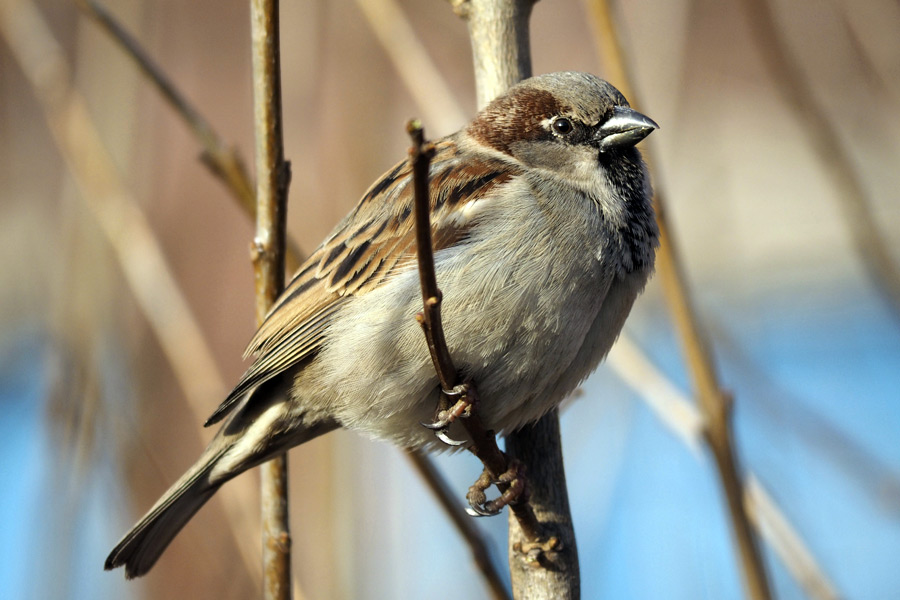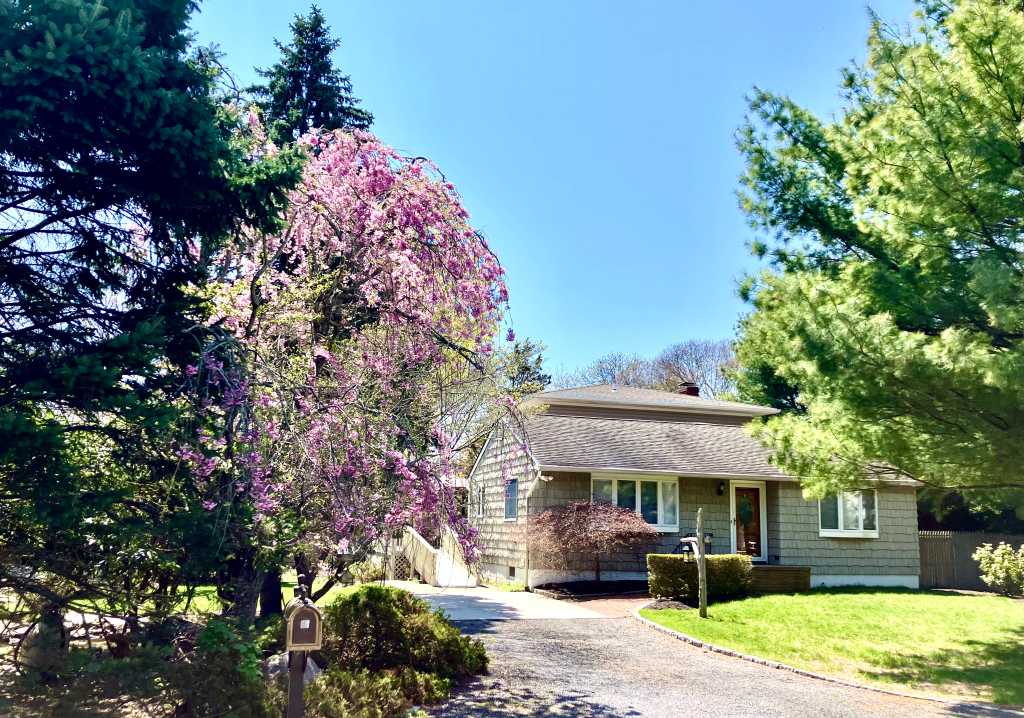Dan's Literary Prize Spotlight: I Remember the Sparrow

I was buying a coffee at a deli in Mastic Beach, my hometown, when I heard the following conversation between the guy working the counter and a customer dressed in greasy coveralls, buying a sandwich:
“I like to buy my lunch here before I head east,” the customer said. “Too damn expensive out there.”
“I hear that,” the counter guy replied, ringing him up. “Southampton ain’t what it used to be.”
“No sir,” the customer agreed. “Southampton was better when it was three things. Potatoes, ducks and duck shit.”
Then he handed over a five-dollar bill and waited for his change.
When I was a kid, Southampton was only one thing: camping with my family off Major’s Path in North Sea. A couple of years before I was born, my dad bought a few acres on the top of a hill there with money he’d borrowed from his brother. Every summer afterward, he would take a week off from his technician job at Grumman and load up the family van with kids; a tremendous army surplus tent; coolers full of beer, generic soda, and bologna; his usually pregnant wife; and a tangled mess of fishing equipment. Each year us kids would fight over who got to sit over the wheel wells (there were no seats in the back) and who had to share floor space, “space” being a rarer commodity with each passing season as the number of siblings grew from six, to seven, to eight, and so on. Being one of the youngest, and a girl to boot, I usually ended up not only on the floor, but under a pile of beach towels or, worse, a jumble of rusty fishing tackle.
North Sea was only 30 miles away, but the drive to our paradise felt like an eternity. We would sing along to the radio, my big brothers always in cheesy falsetto, and look out the back window as our working class neighborhood with its dilapidated shopping centers and parking lots full of broken glass disappeared behind us, the long strip of tree-lined highway coming into view. Then, we would hang on tight to each other and laugh like crazy as our father tried to navigate the rocky incline up the forested hill, all of us getting jostled about and spilling the root beers we’d stolen from the cooler when Mom wasn’t looking.
Once we finally made it, we would slide the door open, spill from the van, and set up camp, which meant Dad grabbing a can of Schlitz and finding a comfortable log to sit on while the rest of us tried to figure out how the hell to erect the tent, a huge, moldy tarp with many poles. After that, Dad would take his fourth or fifth beer into the woods along with a selection of boys, his Army in Search of Firewood, while I tacked up nails for towels and Mom nursed the baby.
Eventually, Dad emerged from the trees, singing the song he always sang, a song he made up in those very woods one summer, a song titled “Cause We’re the Men”—a sometimes triumphant ditty, at other times an opera, and occasionally a folksy, drunken ballad. The song described the gathering of the firewood, the pitching of the tent, the nursing of the baby, the climbing of the hill, and other general feats of manliness, and when we heard it, we knew that summer had begun.
As the week progressed, new verses would be added: “WHY do we SWIM and FISH the BAY?”
“And WHY do we pick blueberries AND drink BEER?” “OH WHY do we SHOOT the bb GUN?”
“CAUSE WE’RE THE MEN!”
One morning I woke early to check on my bear traps, a complicated system of strings, cardboard inserts from toilet paper rolls, and banana-peels that was sure to catch nothing. Certainly, nothing was what I found, so I continued down the trail picking blueberries along the way, eating a few but saving most in my pockets for Mom’s campfire pancakes. Mom had promised them the night before as we sat around the fire toasting marshmallows and getting grossed out by our dog, Orion, who had emerged from the woods with a frog in his mouth. Orion was a huge dog, part Rottweiler and part who-knows-what. He had found us one morning there when we were swimming and, emaciated and starving, he ate all of our sandwiches and shat in our van. So we adopted him, which is what we did to every needy thing that found us. That night he tore a hole through the tent during a rainstorm. We’d all woken up soaked.
I wondered about these things—my mother’s already tested patience with dogs and children alike and how that affected the possibility of flapjacks when I heard it—a gunshot. I turned and saw through the bushes my dad and my brothers. They had their bb guns and stood before a log on which some empties were lined up. Next to them was a young man I’d never seen before. He was dressed in clothes that looked expensive and clean, and he was showing my brothers, all filthy and some barefoot, a shiny black pistol. Then he let one of them, Joel, hold the gun. My father helped him to steady it, aiming toward the log. Joel squeezed the trigger. The gun fired, blowing a can to smithereens.
“I want to try!” I cried, emerging from the bushes.
“My daughter,” Dad explained to the stranger. “Annie Oakley.” Joel handed the gun to me. It felt heavy and warm.
“Like this,” Joel said, adjusting my grip.
I could feel my father’s legs behind me, my ponytail against his hip, his hands on my shoulders. “Thatta girl,” he said. “You got it now. When you’re ready, just give it a— ”
Before he could finish I pulled the trigger, not prepared for the power of it, the way that the explosion would try my small and skinny frame, for the sound of that explosion, the crack that seemed to split the air apart, starting at the very place I stood and ending somewhere far off, maybe across the bay, maybe the other side of the sea.
And then a not-so-far-off sound, something quiet and almost apologetic, like an uneasy question after a round of applause—the falling of a sparrow from its nearby perch onto the ground below.
“My God!” my father hollered. “She shot a bird!”
“Well, goddamn,” the stranger said.
My father took the gun from my now-trembling hands, and went off to retrieve the thing that I had killed.
“I didn’t really shoot a bird, did I?” I asked my oldest brother, Peter, who looked at my father, searching through the leaves, then at me. There was uneasiness in his eyes.
“You sure as hell did, little lady!” the stranger said. “A sparrow!”
Then I began to cry, and Peter ran to my father, who held something in his hand. The stranger awkwardly tugged on my ponytail. “It’s just a little bird, kiddo. It’s all right. This woods has millions of ’em.”
My nose was beginning to run, and I wiped it on my T-shirt. I looked up and I could see Peter, pleading with Dad, who nodded at his son with understanding. Moments later, they were back.
“Well,” my father said, squatting low and brushing wisps of hair from my tear- stained face. “I hate to disappoint you, but it looks like I was wrong. It was just a branch you shot. ”
I don’t think I really believed my father, but I allowed myself to, at least for a little while. I believed him for the rest of that day, a day when we went into town for ice cream and fished, and I thought not at all about the sparrow. I believed him all that night too, when we hiked through the woods in search of kindling for the campfire, the first time I had ever been chosen for his Army.
I believed him as we sang new verses to a song we already knew. Southampton is a lot of things to me now.
I think about those summers in North Sea each time I go to there, which is every week during my commute to the university. When I drive past the expensive boutiques, I remember my dad’s cut-off shorts and frayed-around-the-rim army hat, my blueberry stained pockets. Signs on Main Street say “Proper Attire Required.” I remember diving, bare-chested and dirty, into the bay with my brothers and sisters. Restaurants I can’t afford to patronize invoke memories of freshly dug clams and Mom’s pancakes.
I think of potatoes, ducks and duck shit. I think of Orion, the frog-eating dog, long dead now.
I think of my father—also gone—alive, and happy, and singing. I remember the sparrow.
“I Remember the Sparrow” is a spotlight submission from the 2014 Dan’s Papers Literary Prize for Nonfiction contest. Enter this year’s contest at LiteraryPrize.DansPapers.com.

Shannon Mowdy is an MFA candidate in Creative Writing and Literature at Stony Brook Southampton. She lives in East Moriches with her fiancé and two children, all artists.



